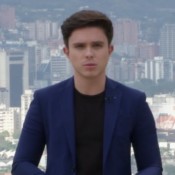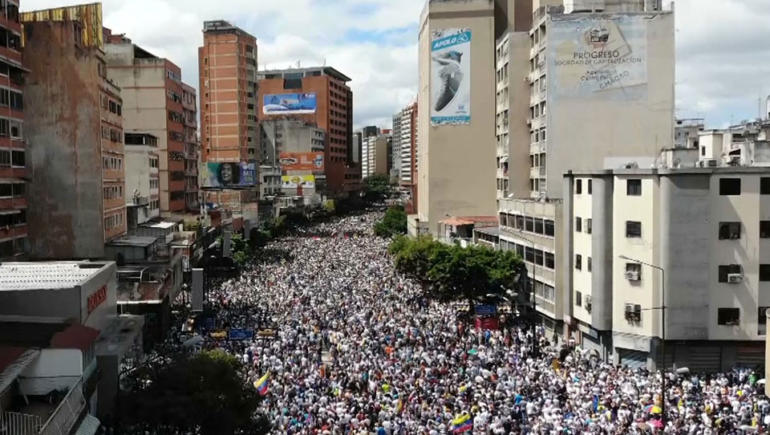Venezuela’s president, Nicolas Maduro, aims to beef up his nation’s defenses. He plans to expand a civilian armed militia to 2 million by mid-April.
It’s in response to a flare-up in tensions with the United States. The U.S. slapped new sanctions on the Venezuelan state oil company as Washington backs opposition leader Juan Guaido to replace Maduro. Venezuela’s attorney general asked the top court to ban Guaido from leaving the country and to freeze his assets. CGTN’s Juan Carlos Lamas reported from Caracas.
Venezuela is home to the world’s largest proven oil reserves. The new round of U.S. sanctions imposed on Monday was a punch to the country’s lifeline. Last year, Venezuela sold more than 500,000 oil barrels to the United States each day. U.S. refiners are among the few countries that pay cash for Venezuela’s oil.
The new sanctions against PDVSA, Venezuela’s state-oil company, meant that cash will likely dry up. The U.S. can continue to purchase Venezuelan oil, but the payments must be held in an account that cannot be accessed by President Nicolas Maduro’s government. “PDVSA has long been a vehicle for embezzlement, for corruption, for Venezuelan officials and businessmen,” Steve Mnuchin, U.S. Treasury Secretary, said at a White House press briefing.
After the sanctions were announced, President Maduro accused the U.S. government of stealing CITGO, the PDVSA refinery in the U.S. “I have instructed President of PDVSA and Citgo’s owner to start legal and political actions before U.S courts and around the world to defend our property and CITGO’s wealth,” Maduro said.
The U.S. said the sanctions have nothing to do with stealing wealth; that they’re about forcing Maduro from office in order to bring democracy back to Venezuela. The U.S. added that it will lift the sanctions once Maduro’s government hands control over to opposition leader Juan Guaido, who would use them to help establish a new government. “There’s going to be a lack of dollars necessary to buy and import all goods here in Venezuela, leaving this country in a desperate situation,” Pedro Palma, an economist, explained.
Millions of Venezuelans have been coping with hyperinflation and shortages of basic food and medicine since Maduro became president after the death of Hugo Chavez in 2013.
Many hoped that political change will bring economic relief. Venezuela’s opposition had called for a show of support, with tens of thousands of people planning to take to the streets this week, to demand a stop to the economic freefall and a new beginning.
Clifton Ross on US-Venezuela relations
The U.S. has levied a new sanctions on the Venezuelan state oil company as Washington backs opposition leader Juan Guaido to replace Maduro. It comes as Venezuela is mired in an economic and humanitarian crisis. Clifton Ross has spent decades writing about Latin America and social and revolutionary movements and he spoke with CGTN’s Mike Walter about the recent U.S. actions targeting Venezuela.
 CGTN America
CGTN America

